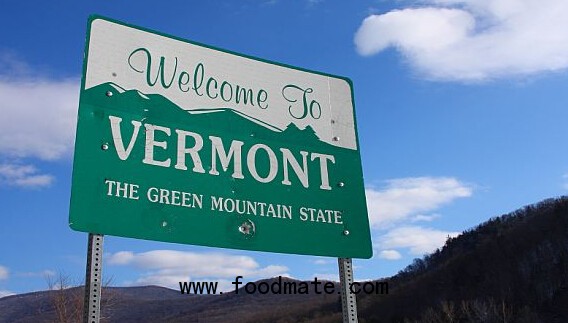
Vermont Gov. Peter Shumlin last week brushed aside concerns raised by a major food group that the challenges and costs of compliance with a labeling law are “inordinate" and could result in daily fines of up to $10 million.
Pamela Bailey, president and CEO of the Grocery Manufacturers Association (GMA), advised the governor in a June 17 letter that a number of her organization’s members have determined the cost of compliance with Act 120—the law requiring labels on genetically engineered foods—will surpass sales of their products in Vermont.
Shumlin wasn’t persuaded.
“Here's an idea for the industry: Just label your products. All of them, nationwide," the governor said in a statement. Sixty four “countries already do it. I'm sure the food industry in America could summon the moral imagination to be the 65th. The industry's real concern is that as goes Vermont so will go America."
A rule implementing the law takes effect on July 1, 2016.
In the letter to Shumlin, Bailey said food manufacturers are strictly liable for violations of the law even if another entity in the distribution chain is responsible for the mislabeled product. She said most food sold in Vermont is supplied by distribution centers and warehouses located outside the state.
“Even with the best of intentions, excellent supply chain logistics and herculean efforts, products will be in the wrong place at any given time, resulting in millions upon millions of dollars in potential fines," Bailey wrote.
She said the law imposes a daily fine of $1,000 for each item that fails to carry the label. Assuming 5 percent to 10 percent of items are mislabeled and a company sells around 2,500 items, “that slippage rate of products would translate to a $125,000 to $250,000 daily fine," Bailey noted.
Bailey predicted the industry could face fines as high as $10 million per day.
“A $10 million per day fine to comply with the labeling law of the second smallest state in the Union is hugely problematic for an industry that employs 14 million U.S. workers and represents the largest sector of manufacturing," she declared.
In a statement to the media, Vermont Assistant Attorney General Megan Shafritz rejected Bailey’s predictions regarding non-compliant products and the projected fines.
“While the idea that the industry would face $10 million dollars a day in fines based on products that inadvertently slipped through the supply chain is farfetched, we would expect that sophisticated industry groups could take steps to manage any potential liability for such mistakes through arrangements with their suppliers and retailers," Shafritz said. “Further, GMA’s ominous forecasts as to unbearable costs and market exodus are reminiscent of the dire predictions made by the automobile industry in the vehicle emission standards case, which were rejected by the Court and never came to pass in any event."
Vermont Attorney General William Sorrell is charged with implementing Act 120 and defending it in a lawsuit brought by food groups including GMA. Bailey complained that the State of Vermont has been uncooperative in responding to requests seeking clarification on the law’s implementation, and hasn’t provided any guidance yet.
The attorney general’s office “has been working with industry groups, both local and national, throughout this process and anticipate continuing to do so even after we begin enforcing the law beginning on July 1, 2016," said Todd Daloz, Vermont Assistant Attorney General, in an emailed statement that responded to Bailey’s accusation. “As we’ve planned since beginning the rule-making process, we will be releasing formal guidance on Act 120 this summer and will incorporate the questions and concerns raised by the regulated community—GMA included—as part of that process."
“Our work on the guidance will, no doubt, continue to evolve," Daloz added, “and we hope to remain in dialogue with industry groups throughout."
Act 120 is the first law in the nation that will require labels on genetically engineered foods. In April, a federal judge denied GMA’s request for a preliminary injunction to prevent Act 120 from taking effect. GMA has filed an appeal.
“Plain and simple Vermont's law is about giving consumers the right to know what is in their food," Shumlin said in his statement. “For too long consumers in America have been denied that right. Vermont is saying enough is enough. Give us the right to know."





